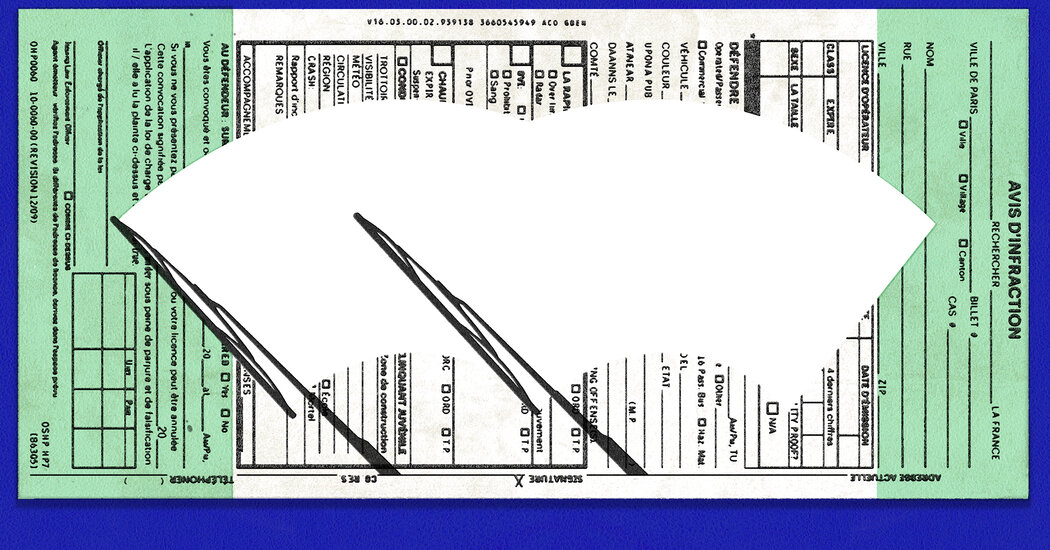
The French Interior Ministry told me that fines must be issued within a year of the infraction, so you’re almost off the hook. If they were mailed by Sept. 15 and eventually find their way to you, though, you’ll have to decide whether to pay or contest them. I should note that a lot of people ignore fines they get on vacation, but I cannot recommend you take that route (though I admit I did scan the 1996 extradition treaty between the United States and France and unearthed no references to speeding violations).
That explains what was supposed to happen, but as your exchanges with Europcar show, and the official at Europcar admitted, things got very confusing. The whole process got off to a bad start last October when Europcar notified you in French about the fees. That’s their right as a French company, but Europcar told me its policy is to communicate in English with English speakers. After you got your credit card to reverse those charges, the company wrote to you in December to seek payment (again in French), though, for some confusing reason, they asked for just 45 euros, not the total 90 euros you had originally been charged. In January, they started responding to your protests in English, but things soon got weirder.
On Jan. 7, they sent you a confusing “invoice” for “-45 euros,” which turns out to have been a credit to your account, on top of the money you had already been refunded by your credit card. Four days later came a truly confusing exchange of messages, including one implying you owed them 45 euros from before and another in muddled English that read: “Regarding the invoice 100229951324, the customer service canceled, but after your rejection you were refunded an amount that you did not pay.”
Is there anything Americans can do to avoid troubles with international rentals? In general, I recommend favoring companies based in the United States, because it is easier to deal with customer service if something goes wrong after you’re back home. Jonathan Weinberg, the founder and chief executive of AutoSlash, a discount car rental site, agrees with my tactics but for a different reason. “The major rental companies tend to behave in a more customer-friendly way,” he said, referring to the familiar brands owned by umbrella companies Enterprise, Avis and Hertz. “They are more permissive about small dents and dings.”
Neil Abrams, a longtime consultant to the rental car industry, had another sensible tip, though it wouldn’t help with traffic violations: Even if you are skeptical of insurance add-ons on domestic car rentals (perhaps because your credit card or own car insurance policy offers some coverage) be less stingy abroad, so you don’t have to spend months seeking documentation to be reimbursed. “You don’t want to deal with these international government agencies and police,” he said. “It’s just too much of a pain.”
Also, be sure to read up on local regulations before you travel (starting on this State Department page) and once you arrive, ask locals about speed cameras — even in the United States and even places you’ve been before. For example, in August, New York City started operating 750 school zone speed cameras 24 hours a day. And the N.Y.P.D. will almost certainly find you much faster than the French.





